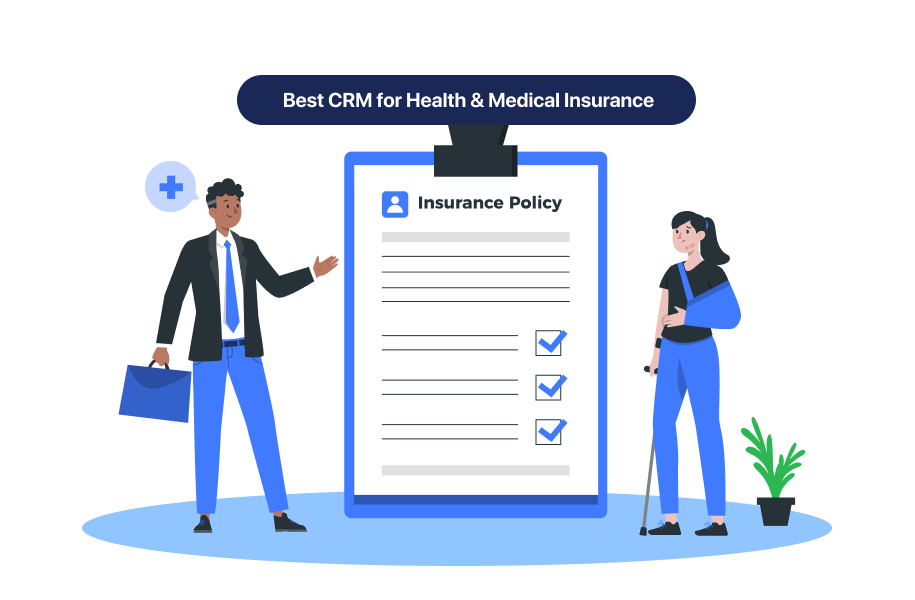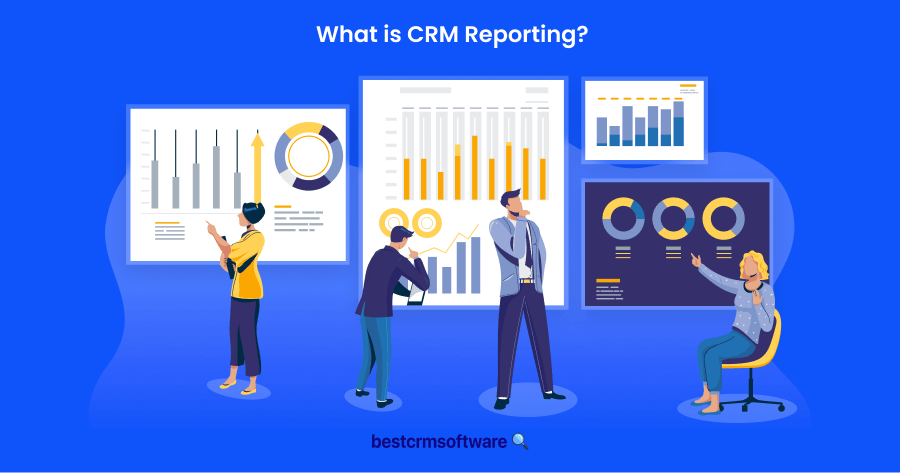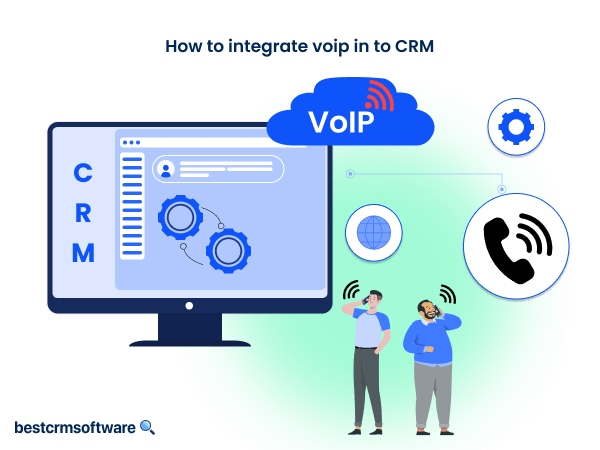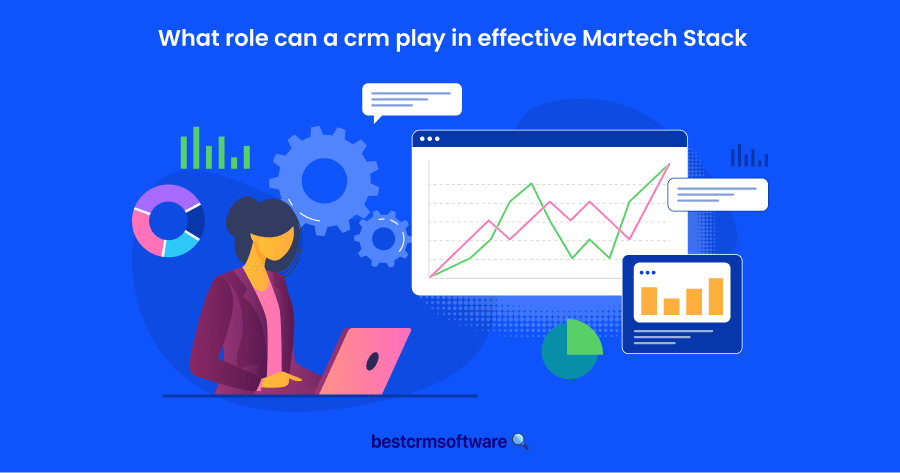
Best CRM Software for Health & Medical Insurance
In a Nutshell
To better understand the best CRM for independent health insurance agents, I have curated a detailed guide on integrating these seamless systems and how they can promote patient care and efficient healthcare administration. As a CRM expert, I spent time testing and reviewing the various healthcare CRM tools and came up with a list of the best CRM tools for healthcare organizations.
Best CRM Software for Health & Medical Insurance Shortlist
- Salesforce Health Cloud — Best for Enhancing Efficiency and Reducing Operational Costs
- Keap — Best for healthcare insurance services
- Zoho CRM — Best for Seamless Patient Management
- Kapture CRM — Best for Speedy Automatic Assigning of Doctors’ Appointments
- Leadsquared — Best for Automated Marketing and Engagement with Patients
Healthcare organizations experience abundant administrative tasks. They seek streamlined approaches to enhancing communication and patient management. Customer relationship management (CRM) tools are vital in promoting service delivery in the healthcare sector.
A healthcare CRM tool or system is specifically tailored to meet the needs of healthcare organizations. It helps healthcare professionals diligently handle administrative duties while efficiently managing patients’ data and interactions. As a CRM expert, I recommend using a healthcare CRM due to the various disadvantages associated with the specialized software system.
An efficient healthcare CRM will create and enhance a more patient-centric approach to the organization’s operations, thus improving the overall patient experience. Finding the best CRM for health insurance agents based on the organization’s needs and objectives is crucial.
Why Medical Insurance agents need CRM Software
A healthcare CRM is a customer relation management tool designed for healthcare organizations and experts. Medical insurance agents require CRM software for seamless and more efficient operations in the modern healthcare sector. Medical CRM software has the following key benefits for healthcare insurance agents:
- Synced Services: Medical insurance agents can access patients’ data in real-time and respond faster to inquiries. They can also provide and access data from different departments, thus having updated data on a patient’s profile. This helps in faster resolution of any customer issues.
- Reporting and Analytics: CRM systems enable configurable reporting by highlighting the key metrics. By examining the critical factors, medical insurance agents will better understand the patient’s needs.
- Enhanced Patient Satisfaction: A deeper understanding of patients’ needs promotes customer satisfaction and engagement. Medical insurance agents can regulate and customize their services to meet patients’ needs.
Top 5 CRM systems for Medical & Health insurance agencies
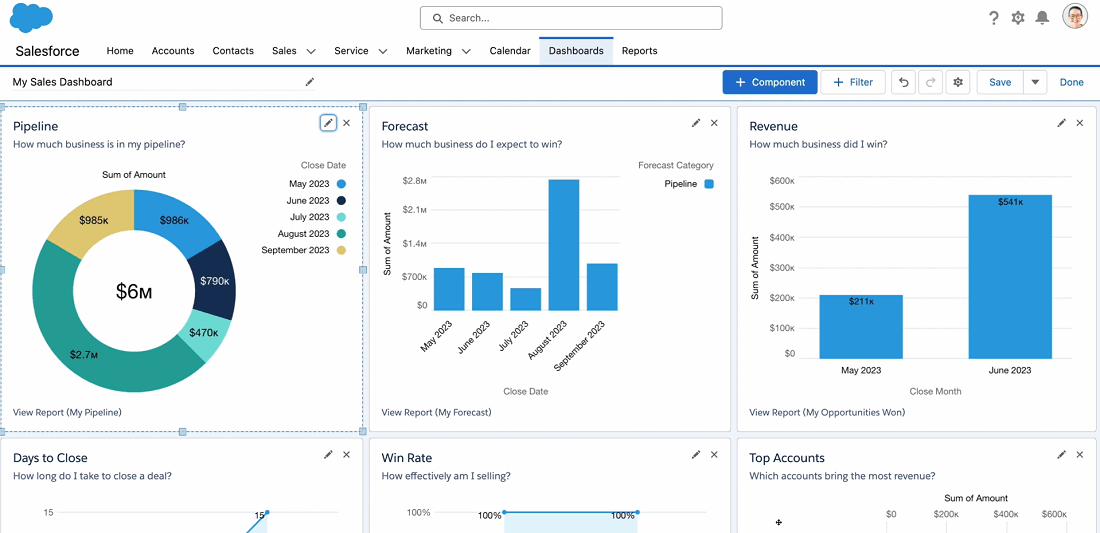
Why we like it
Salesforce is one of the top CRM tools globally and offers customized CRM services to healthcare and life science organizations with its Salesforce Health Cloud tool. It provides easy and timely access to patient data, enabling seamless communication and collaboration. Healthcare insurance agencies can access data on the Salesforce Health Cloud from the organization’s different sources.
Most important features
- Health journeys: offers customized care pathways that enhance the patient’s experience.
- Patient 360: provides healthcare experts with a comprehensive profile of the patients.
- Interoperability: enables a synchronized and efficient operation system by integrating with other systems of the healthcare organization.
- Native Mobile Application: Salesforce’s mobile app is compatible with Android and iOS devices and enables unlimited data access.
Pros
- Most suitable CRM tool for big healthcare organizations.
- Provides usability templates for electronic health records, medication needs, and patient accounts
- Offers various solutions to life and healthcare sciences.
Cons
- It could be costly for smaller healthcare organizations.
- Full implementation requires a lot of time and resources.
- Few Out-of-the-box system integrations
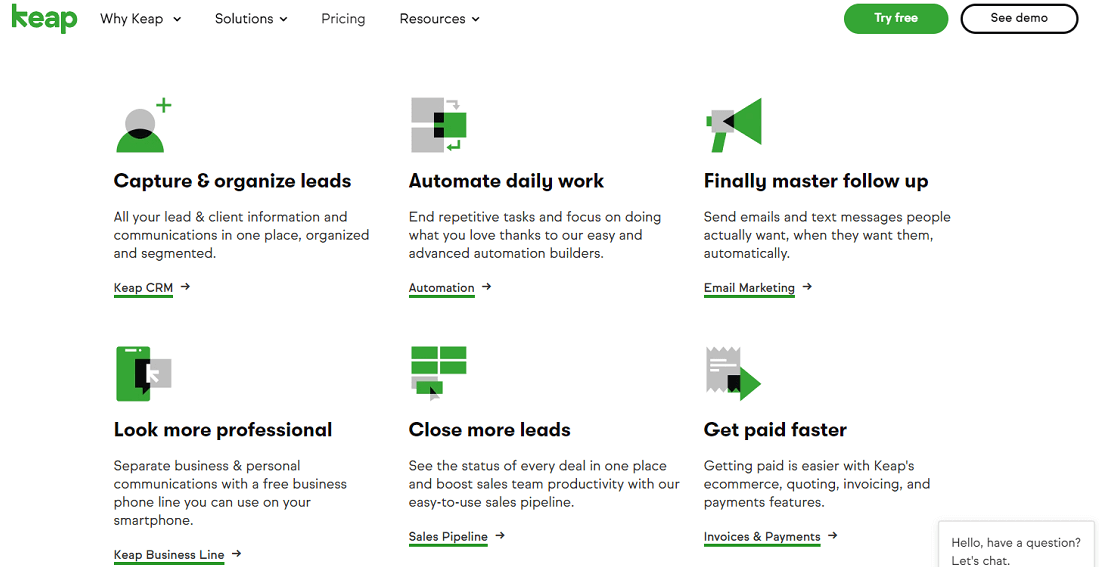
Why we like it
Keap is a healthcare CRM tool curated to meet the needs of smaller organizations without spending a lot of money. It offers various specialized payment plans that deliver key features of sales automation software, marketing systems, and healthcare CRM tools. The tool has enhanced patient experience thanks to the customer onboarding feature.
Most important features
- Integrations: The CRM tool integrates with other key tools used in business operations, such as Dropbox Business, Zoom meetings, Gmail, Trello, WordPress, and Google Drive.
- Policy renewal alert: This service gives patients timely reminders about when they should renew their policies and updates them on upcoming changes.
- Instant patient communication: CRM has an automated email and SMS messaging system for patient follow-ups and other key patient communications.
Pros
- Has an interactive customer support service
- The user interface is user-friendly and has straightforward navigation.
- Ideal for smaller organizations with smaller budgets.
Cons
- Available templates have limited customization

Why we like it
Zoho is a CRM tool that focuses more on patient management, enabling healthcare providers to deliver better services to their patients. The system helps organizations understand their patients’ needs through the provision of real-time data on patients’ insights, enabling the organizations to locate opportunities for improvement in their services.
Most important features
- Workflow automation feature: it enables automation of administrative tasks, hence saving time and cost by reducing errors.
- AI assistant (Zia): The CRM tool has an AI assistant named Zia that predicts healthcare trends and analyzes patients’ interaction information.
- Multichannel communication: Healthcare professionals use different communication channels when using Zoho, ranging from email and phone to social media and live chat
Pros
- The forecasting feature helps in efficient decision-making and predictive analysis.
- Reliable customer support through the knowledge base, email, and phone support.
- Conversational AI that helps the sales team.
Cons
- Challenging integration process with third-party applications
- User face interface can be complicated for beginners
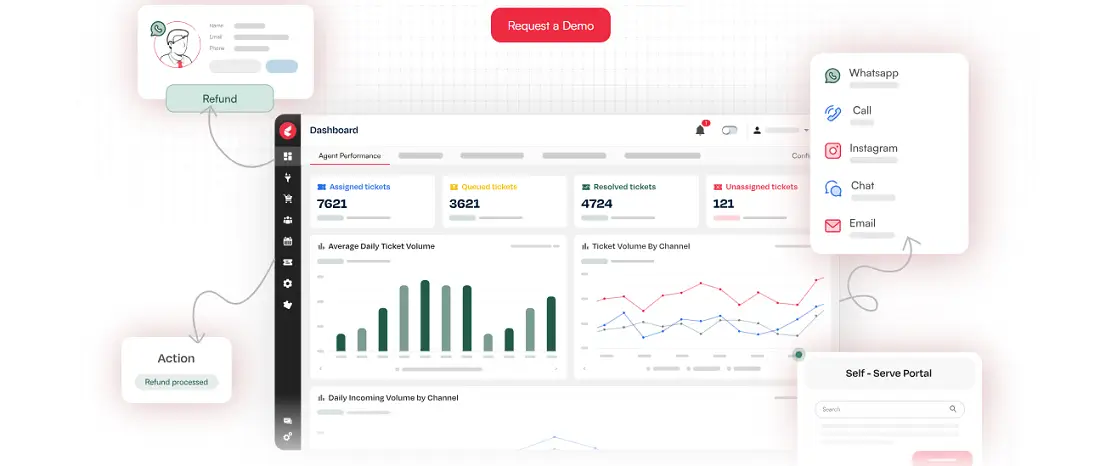
Why we like it
Kapture CRM creates a seamless system for doctor’s appointments. It automatically checks and updates the doctor’s availability and sets appointments. The CRM tool offers high-level patient data security and is compatible across various platforms. The synchronization feature on Kapture CRM enables centralized access and communication across multiple channels.
Most important features
- Mobile notifications: the CRM tool has automated mobile notifications for patients and doctors, ensuring timely communication.
- Third-party integration: Healthcare organizations can integrate the Kapture CRM with other third-party tools, such as FreshBooks, Google Analytics, SAP Customer Experience, and Google Calendar.
- Multi-channel feedback system: This system promotes a deeper understanding of patients’ needs through timely access to patient data.
Pros
- The interface is user-friendly, with easy navigation
- Efficient and seamless doctor’s appointment booking services.
- The customer service support is outstanding.
- It has healthcare-specific integrations.
Cons
- There is no free plan
- Some users have experienced slow loading time
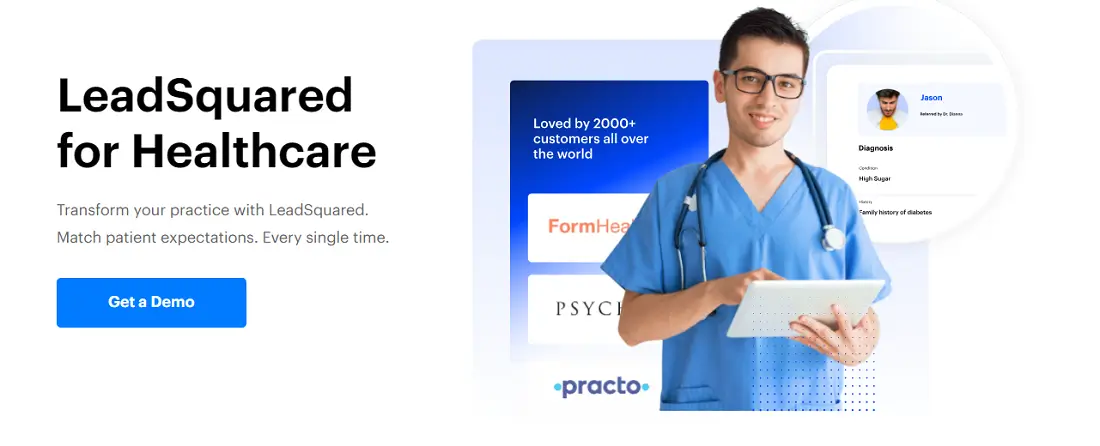
Why we like it
Healthcare organizations looking to elevate their marketing strategies and engagement should opt for the Leadsquared CRM tool. The all-in-one CRM system offers patients personalized engagement, automated workflow, patient journey tracking, acquisition, and segmented marketing. It has an automated marketing system and real-time patient data analytics, thus helping in customer retention.
Most important features
- Automated marketing system: the marketing system of the CRM tool analyzes patients’ data to enable efficient marketing. It also tracks the conversion of marketing campaigns.
- Tracking patient journey: The automated patient journey feature enables healthcare experts to track the patient’s journey. The feature also has event triggers to update the patient on upcoming events.
- Integration: users can integrate the CRM systems with multiple project management and remote working tools.
Pros
- It has granular segmentation capabilities.
- Onsite giving is available through the mobile application.
- Low barrier entry on the CRM tool.
Cons
- Navigation on the system can be challenging.
- It might be costly for smaller healthcare organizations
Criteria for Selecting the Best CRM for Health Insurance Agents:
CRM tools for healthcare insurance agencies operate like regular CRM systems, with the only key difference being the unique functionalities customized for medical insurance agents. When reviewing and evaluating the various medical CRM tools available for healthcare insurance agencies and agents, I focused on the following key metrics:
- Patient engagement: automated customer engagement capabilities enhance customer experience and nurture healthy customer relationships with medical insurance agents.
- Sales and Marketing: Health insurance agents require a CRM system that can help with targeted marketing. The system should provide feedback, measure customer satisfaction, and identify patients’ needs, thus improving performance.
- Communication Tools: Timely and streamlined communication is critical in healthcare. Healthcare insurance agents need to have streamlined communication across all platforms used by patients, which enhances customer interaction.
- Collaborative Task Management: Automated workflows are vital to reducing operational costs and errors in any workplace. The best CRM tool for medical insurance agents should enable the timely and efficient exchange of information, handling of tasks, and distribution of workload.
Conclusion
The best medical CRM tool will help healthcare insurance agents reclaim valuable working hours through efficient administrative task handling. Intelligent integration of administrative tasks, automated marketing, and enhanced patient relations management provide a comprehensive solution in the modern medical world. Picking the best CRM means prioritizing patient satisfaction at all times.

